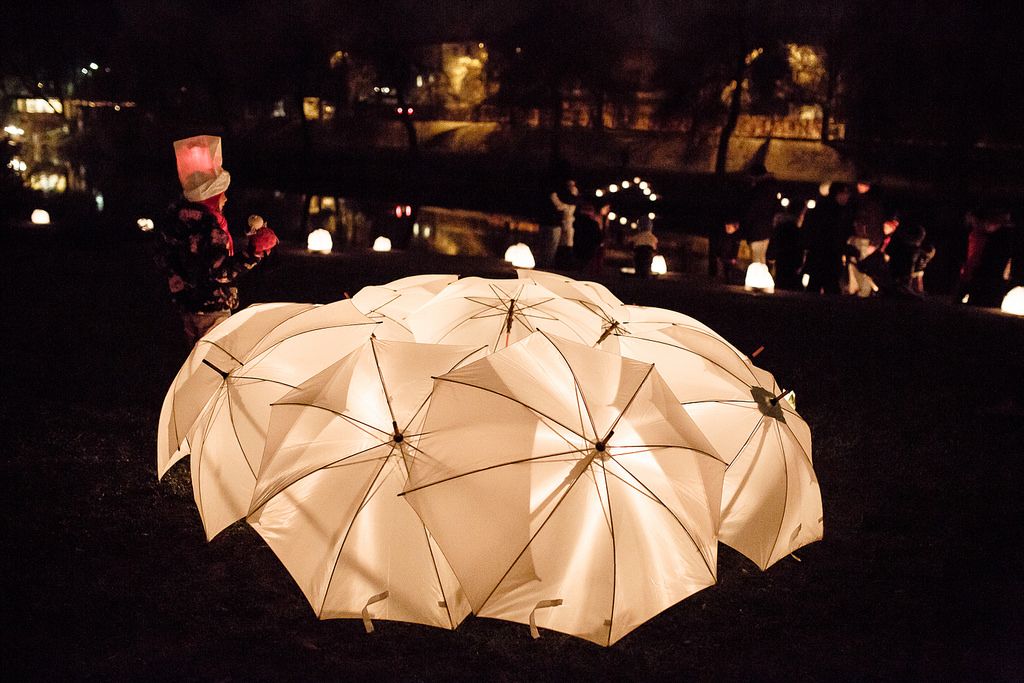News
STA, 23 November 2018 - One hundred years after General Rudolf Maister established the first Slovenian army in modern history, Alenka Ermenc was promoted to become the country's first woman army general.
Slovenia celebrates Rudolf Maister Day on Friday in memory of the day in 1918 when the general (1874-1934) took control of Maribor and in effect secured what later became Slovenia's northern border.
The ceremony at which President Borut Pahor formally elevated Brigadier Ermenc to major general and decorated the association dedicated to the preservation of memory of General Maister was only one in several events marking the anniversary.
Pahor noted that a century ago Maister, "with his bravery and patriotic heart, preserved Maribor and the Lower Styria as Slovenian".
"One hundred years later, Slovenia is one of the world's safest countries. It is the merit not only of our defence force, but of society and country as a whole."
Pahor noted that Slovenia had to defend its independence with an armed force in 1991 and that Ermenc, who was made the first woman general today, was a member of the emerging Slovenian army then.
"This is a momentous moment for her, for the Slovenian Armed Forces, for our national and civic confidence, for our homeland and country," he said.
Putting on her new uniform of major general and accepting the Slovenian flag from the president, Ermenc said it was "the love for homeland" that guided her on her path, which was not always easy.
"I'm aware that the army is victorious only through joint effort and that the average never win," she said, underscoring the importance of knowledge and hard work.
Major General Ermenc studied in London, was in the independence war
Ermenc graduated from the Ljubljana Faculty of Social Sciences and from the Royal College of Defence Studies in London and got her master's degree in 2009 at the King's College University of London.
She was actively involved in the 1991 independence war as a member of the Territorial Defence, the army's precursor. She has been employed in the SAF for 27 years.
She was promoted to the rank of brigadier in May 2011 and in March this year she was named deputy chief of the general staff, the highest rank for a woman in the army.
Roughly one out of six members of the active component of Slovenia's Armed Forces are women (1,097 out of 6,658), including 188 civilians. As many as 301 are officers or non-commissioned officers.
Pahor also presented an Order of Merit to the General Maister Association and its founder Milan Lovrenčič for their efforts in the preservation of memory of the general and his contribution to Slovenia.
It was thanks to the association that 23 November has been observed as a public holiday since 2005, although not as a bank holiday. At the association's initiative the Maister Library of the University of Maribor, which keeps his books, has recently been declared a monument of national importance.
Ob dnevu Rudolfa Maistra je PRS in vrhovni poveljnik obrambnih sil priredil posebno slovesnost ob povišanju Alenke Ermenc v čin generalmajorke in vročil državno odlikovanje Zvezi društev general Maister in mag. Lovrenčiču. https://t.co/a4eYNg1n6I pic.twitter.com/dDE952kbRF
— Borut Pahor (@BorutPahor) November 23, 2018
Why Maister is the biggest name in Slovenian military history
Judging by his popularity, Maister is likely the most prominent military personality in Slovenian history. It is largely owing to him that Maribor, Slovenia's second city, and the north-east of Slovenia became part of the new Yugoslav state rather than Austria after the Austro-Hungarian Empire collapsed.
Maister was in command of the regional headquarters at the end of World War I and in 1918 assumed command of Maribor and the Slovenian part of Carinthia. He set up a Slovenian army of 4,000 soldiers, disarmed the German Schutzwehr security service, and disbanded the militia of the German city council.
The general then occupied Slovenian ethnic territory, establishing the northern border between Austria and Yugoslavia that was later ratified by the Saint Germain Peace Treaty. The same border still runs between Slovenia and Austria today.
The main ceremony marking the holiday was held in Maribor last night. In his keynote, Speaker Dejan Židan described Maister, a general and a poet, as a resolute, confident, courageous, selfless and honest patriot with the soul of an artist. He said people of his calibre were needed today.
"At the time it was about life and death. The situation called for quick decisions and actions, not just on Maister's part but on the part of everyone involved ... It wasn't until after Slovenia's independence that his historic merit was acknowledged by official politics." Židan said.
The ceremony was also attended by President Pahor and members of the government, including Prime Minister Marjan Šarec, who praised Maister as the epitome of bravery, determination and resolve.
An exhibition showcasing Maister as general and poet was launched at the National Assembly today. While wreaths will be laid at his grave in Maribor, Slovenian air force aircraft will fly over the city.
In keeping with a tradition launched by him, Pahor is holding an open door at the Presidential Palace today.
Predsednik Pahor je na predvečer dneva Rudolfa Maistra položil venec k spomeniku Rudolfa Maistra na trgu generala Maistra v Mariboru. pic.twitter.com/ZABRh0dlom
— Borut Pahor (@BorutPahor) November 22, 2018
Related: All our stories on Slovenian history are here
STA Ljubljana, 21 November 2018 - The government and three public sector trade unions initialled a pay-rise agreement worth more than EUR 300m on Wednesday. Meanwhile, nearly 20 public sector unions are still in talks with the government and are also planning a strike and protest alongside unions from the private sector for 5 December.
The agreement was initialled by the SVIZ union of teachers and two unions representing health care employees. The solutions amount to a total of EUR 306m in 2019 and include pay increases of between one to three brackets and increases of some bonuses.
On the other hand, performance bonuses and promotions are to remain frozen until December 2019 instead of April 2019.
While the health care unions are not completely happy with the agreement, they see it as a first step forward.
Branimir Štrukelj of SVIZ on the other hand was happier with the outcome, saying that the agreement included everything his union had already negotiated with the previous government in the spring.
Nonetheless, SVIZ has not yet officially called off the strike. If its members express agreement with the document, the strike planned for 5 and 6 December will be suspended until the points negotiated are actually included in the collective bargaining agreement.
Because some of the changes need to be incorporated in the public sector collective bargaining agreement, they must be supported by a required number of unions.
A group of 17 unions represented by negotiator Jakob Počivavšek is still in talks and it remains open whether they will also support the agreement. Police unions are also unhappy and still in talks with the government.
Following hours of talks today, chief government negotiator Peter Pogačar announced that a breakthrough was made with Počivavšek's group and that he expected an agreement will be reached to prevent their strike too.
Počivavšek was slightly more reserved, but corroborated that the negotiators "are inches away from harmonising the agreement at the level of negotiating groups", but that some issues remain open.
"We're happy we succeeded with our primary strike demand about raising wages for practically all public sector employees, but we assess nevertheless that some exceptions brought anomalies or destroyed ratios [in the single public sector pay system], which will have to be addressed very soon," Počivavšek said.
The government is to send the proposal to the trade unions tomorrow, with the unions to decide on it on Friday. It is still to be decided if another round of talks will have to be held.
Meanwhile, the government has already hosted a meeting of all 42 representative unions of the public sector to discuss a new pay agreement to substitute the existing one from 2016.
The document would also include the points agreed upon by the unions and the new government over the course of the past weeks.
STA, 23 November 2018 - Mercator, Slovenia's largest retailer, posted a group net profit of EUR 9m for the first nine months of 2018, which compares to a EUR 10.5m loss in the same period last year, as sales rose by 1.6% to EUR 1.62bn.
Profit before income tax, depreciation and amortisation (EBITDA) rose by a quarter to EUR 87m, with operating profit (EBIT) surging by 157% to EUR 36m, the company said in an interim financial report released on Friday.
The improvement was driven by retail sales, which rose by 5.4% to EUR 1.2bn. "A new strategy, new store concept, store refurbishments and improved competitiveness of services are driving positive results in the core business," the company said.
On its key Slovenian market, retail sales improved by 0.5% despite what the company said was a significant reduction in store surfaces.
By the end of September, the group reduced its net financial debt by a tenth to EUR 738m, with the debt-to-EBITDA ratio going from 16 to 7.2.
Investments in fixed assets were almost halved to EUR 19m.
The number of employees dropped by more than 2% at group level to 20,322.
The core company saw sales improve by less than a percent to EUR 880m, while net profit remained flat at EUR 14.7m.
The financials do not yet account for the monetisation of real estate agreed in October, when Mercator concluded a sale and leaseback agreement with Austrian developer Supernova involving ten malls and worth EUR 117m.
Related: How to get a Mercator Pika card
STA, 22 November 2018 - The government approved on Thursday a budget deal for 2019, securing extra funding for pensions and municipalities, according to an official tweet. The detailed contents of the changes to the budget implementation act for 2018 and 2019 is not known yet.
The changes are needed because of the additional costs envisaged for next year. The government will also need to prepare a supplementary budget for 2019. "It (the supplementary budget) will be discussed next year, but talks will start now," Prime Minister Marjan Šarec said after the session.
The costs for next year rose following an agreement with municipalities on higher funding, which will cost an additional EUR 32.5m, and a pensions raise in the autumn, which will cost EUR 7m.
The budget expenditure will rise by another EUR 6m because of the setting up of a new budget fund promoting the development of NGOs.
Pensions remain a sore point
The government also endorsed today the proposal drawn up by Finance Minister Andrej Bertoncelj under which EUR 140m would be allocated for the annual bonus for pensioners, which means additional EUR 18m in cost for the state.
The proposal was endorsed unanimously although the Alenka Bratušek Party (SAB) had demanded that the government fully honour the commitments from the coalition agreement regarding pensioners, which would cost EUR 178m.
Šarec stressed today the amount of money available was limited. "I personally believe that people deserve a decent living, but ministries will need to work hard and prepare certain structural measures," he said.
Commenting on the tensions between the Pensioners' Party (DeSUS) and the SAB over their demands concerning pensioners, he said that all members of the government must work for the benefit of all social groups and that it made no sense to claim that just one party advocates for pensioners.
To balance the budget, the government plans to cut budget spending by EUR 80m. Some EUR 16m are to be saved by leaving transfers to individuals and households level in 2019 and another EUR 60m by keeping restrictions on the paying out of bonuses for increased workload to public sector employees.
STA, 22 November 2018 - The iconic Alpine lake of Bled is to become even cleaner as the local authorities have purchased an electric vessel which will be used to clean the surface of the lake, removing leaves and various waste, such as plastic bottles and bags.
The floating electric robot has been purchased on an initiative of the rowers of the traditional Pletna boats, which are used to take tourists around the lake and to the picturesque Bled Island.
Funded from the fees that the local authorities collect from the various users of the lake infrastructure, the device is the first of its kind in Slovenia and this part of Europe, the Municipality of Bled announced on Thursday.
The vessel will be collecting various waste and debris on the lake surface and will cause no additional pollution, as it does not use fossil fuel.
Jakob Bassanese of the municipal utility Infrastruktura Bled, which will operate the vessel, said that this was yet another solution with the aim to contribute to the sustainable management of the lake, which attracts an increasing number of tourists.
The device produced by the Swiss company Grove Boats is actually a prototype, Bassanese said, adding that the vessel had arrived at Bled about week ago and that the initial tests yielded satisfactory results.
The remote-controlled vessel, whose batteries can last for two hours and which can carry rakes and nets of various densities, will be docked in the bathing area just below Bled Castle.
On Sunday, the bottom of the lake will meanwhile be inspected by divers in a campaign initiated by the organisers of the Bled Water Festival, a leading festival in the region in the field of water innovation.
Another campaign to clean up the bottom of the lake will be organised in the spring by the Slovenian Diving Association in cooperation with the local diving club.
Below is a review of today’s news in Slovenia, summarised by the headlines in the daily newspapers for Friday, November 23, 2018, as prepared by the STA:
DELO
Internet
"Slovenia on the internet for 25 years": Slovenia appeared on the internet exactly 25 years ago, when Mark Martinec set up the first Slovenian web server at the Jožef Stefan Institute. The web page he published that day was declared the best in the world two months later together along with a Japanese web page. (front page, 4)
Koper mayor
"Popovič after the mother of a young footballer": Koper Mayor Boris Popovič is being accused of trying to fire a woman from the local utility company for letting her son transfer from the Koper football club to Olimpija Ljubljana. (front page, 8)
Budget
"Government giving more for pensioners and municipalities": After some ruffle in the coalition, the government unanimously adopted the budget implementation bill which provides an additional EUR 140m for the annual bonus for pensioners and an extra EUR 32.5m for per capita payments for municipalities. (front page, 2)
Rudolf Maister Day
"Rudolf Maister between passions and grudges": Rudolf Maister Day, celebrated in honour of the WWI general who defended what is now Slovenia's northern border exactly 100 years ago, was marked with a high-profile ceremony at the SNG Maribor theatre. (front page, 8)
DNEVNIK
Tensions in coalition
"Šarec summons up courage and shows Bratušek the door": Prime Minister Marjan Šarec was successful for a second time in setting an ultimatum to the Alenka Bratušek Party (SAB), this time because of the SAB's unwillingness to back the budget implementation bill. (front page, 2, 18)
Local elections
"Saturday's opportunity for Kranj residents to make their mind: Rakovec or Stevanović?": On Saturday, the paper will run an in-depth debate between Matjaž Rakovec and Zoran Stevanović, who will square off in the second round of the mayoral election in Kranj on 2 December. (front page, 2, 18)
FINANCE
Swiss franc loans
"Loans in francs and judges on the banksters' side. A lie or truth?": The paper asks six questions and provides six answers about the latest rulings of Slovenian courts on housing loans in Swiss francs and what they mean for borrowers and future transparency and fairness of banks. (front page, 6-7)
Local elections
"What mayoral candidates in Maribor, Kranj and Koper promise for business": The paper compares the business programmes of the rivals in the mayoral run-offs in Maribor, Kranj and Koper, to be held on 2 December. (front page, 4-5)
Pharma company Krka
"High projections for next year": The pharmaceutical group Krka, based in Novo Mesto, will post higher profit and revenue in the third quarter than planned, while projections for 2019 forecast the highest profit in the recent years. (front page, 10-11)
Pensions
"A few inconvenient facts on demographics and Slovenian pensions": The paper lists five facts about pensions in Slovenia, including that only 12% of pensioners received more than EUR 1,000 in net monthly pension last year, which is approximately the current average wage. (front page, 2-3)
VEČER
Maribor airport
"Resistance in Hoče, Chinese in play again": Locals in Hoče are protesting against the plan to extend the runway of the Maribor airport over environmental concerns. In the meantime, the Chinese-owned company leasing the airport infrastructure has paid the outstanding lease. (front page, 4)
Rudolf Maister Day
"Homage to Maister": Almost all senior officials were in Maribor last evening for the national ceremony marking Rudolf Maister Day in honour of the WWI general who defended what is now Slovenia's northern border. (front page, 8)
Trade wars
"Europe and US should act on China together": As he visited Ljubljana for the Trilateral Commission meeting last week, Jacob Frenkel, the chairman of JPMorgan Chase International, spoke for the paper about trade wars and measures to prevent crises and populism. (front page, 5)
The drink driving limit in Slovenia is a low one, and the penalties are strict.
Tonight, November 22 2018, a concert will be held in Ljubljana featuring the Police Orchestra and Vlado Kreslin. The occasion for this special event? A seasonal reward for drivers who were stopped around the St. Martin’s Day (Martinovanje) celebrations and achieved 0.0 on a breathalyser test. It’s a timely reminder as the season for office parties and social drinking is approaching that death on the roads doesn’t take a vacation, and that in addition to your own drink driving behaviour it’s a good idea to keep an eye on friends and loved ones at this time of year, and to plan for one sober driver or a taxi if needed.
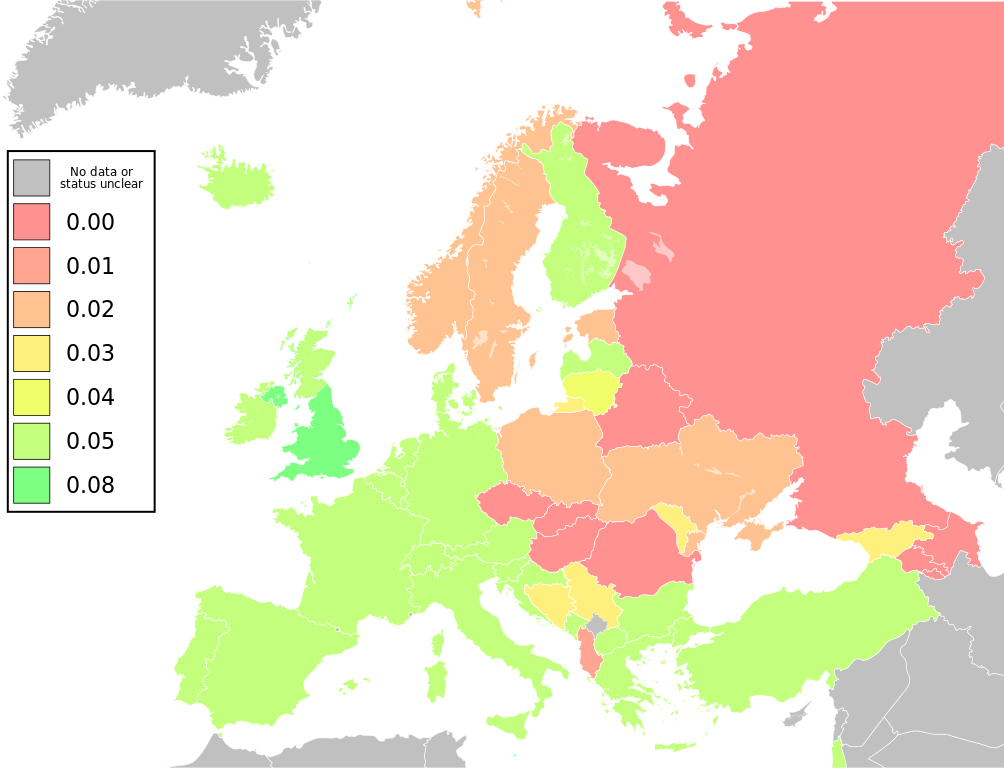
The various drink driving limits in Europe. Wikimedia, public domain
The legal limit for ordinary drivers is Slovenia is 50 mg of alcohol per 100 ml of blood or 0.24 milligrams of alcohol per litre of exhaled air, while for beginners, professional drivers and other special groups total sobriety is required at all times.
Ideally no drivers should drink, but as a ready reckoner 350 ml of beer, 150 ml of wine and 5 ml of spirits will keep you under the limit, while two such drinks will put most people under 70 at or over the threshold, with gender, time since the alcohol was consumed, and food in the stomach being additional factors that influence the results.
The organization International SOS has produced the latest edition of its Travel Risk Map, finding Slovenia one of only eight countries in Europe deemed to have an “insignificant risk”, along with Luxembourg, Denmark, Switzerland, Norway, Finland, Iceland and Greenland. Outside of Europe, the Seychelles and Cape Verde were also rated low risk destinations, based on factors such as political violence, crime, and social unrest, as well as transportation infrastructure, susceptibility to natural disasters, and the abilities of emergency and security services.
All other European countries were rated “low risk”, apart from Kosovo and Turkey, which gained “medium risk” status. The countries which were seen as presenting “extreme risk” for travelers were Mali, Libya, Central African Republic, South Sudan, Somalia, Yemen, Syria, Afghanistan, and parts of Iran, Pakistan and Nigeria.
In addition to security issues, International SOS also produces maps looking at medical risk and traffic safety. For the former, Slovenia – along with most of Europe – was seen as a low risk destination, while for road safety it gained a “low” rather than “very low” rating, the same as Italy, the other Balkan nations and Eastern Europe.
More details, along with the maps and the methodology behind their production, can be found here.
See all our stories about statistics and studies related to Slovenia here
STA, 22 November 2018 - The Nazi-themed posters in Velenje that upset the public this summer were put up by a minor with no ties to any extremist groups, police investigation has shown. He faces charges for public incitement of hatred and intolerance.
During the investigation, police found out that the suspect had acted alone and that his motive was not related to extremist groups.
According to the Celje police department, the juvenile put up six posters with Nazi content around Velenje in June.
Earlier: Nazi posters appear in Velenje
The posters said "For Family, For Country, For the Race", with the final parole followed by a swastika. At the bottom was a link to Discord, an application specialising voice-over communication for gamers.
The paroles were written in Gothic script and the posters depicted a soldier wearing an iron cross, one of the main symbols of the Third Reich.
The incident triggered a strong reaction from the public as well as top political officials. The then Prime Minister Miro Cerar called for a "decisive NO to all forms of hate speech encouraging intolerance and hatred among people" and President Borut Pahor spoke of a "notorious violation of rules and the law."
The Celje police had the posters examined at the national forensic lab and searched the home of the suspect from Celje. They seized his computer, mobile phones and other electronic devices.
The evidence collected suggested, that he got the Nazi symbols from the internet and made the six controversial posters on his computer.
Related: Football fans, skinheads, neo-Nazis and militias – the far right in Slovenia
STA, 21 November 2018 - The European Commission has established that Slovenia'a draft budgetary plan for 2019 is at risk of non-compliance with the requirements of the Stability and Growth Pact. It has called on Slovenia to take appropriate measures and send a revised plan back to Brussels at least a month before submitting the 2019 supplementary budget to parliament.
The assessment published on Wednesday had been expected, as the new government, which took over in September, has sent the draft budgetary plan for 2019 under the no policy change scenario while it has recently engaged in changes to social transfer and pay policies. Slovenia also received the same mark last year.
The European Commission has called on Slovenia to take measures to bring the budget in line with the EU rules, especially when it comes to the difference between the recommended and planned structural effort and the difference between the recommended and envisages rate of growth of primary net expenditure.
Four other countries at risk of non-compliance
Joining Slovenia in the group of countries at risk of non-compliance are Belgium, France, Portugal and Spain.
The Finance Ministry said that Slovenia would sent to the Commission next year a draft budgetary plan which would be "as compliant as possible with the EU rules". It will be prepared along with the 2019 supplementary budget.
The ministry added that it had already informed the Commission in mid-October, when the draft plan was sent to Brussels, that a new draft would be made at the beginning of next year.
It said that the plan had been submitted under the no policy change scenario because "it is completely usual that right after a government change draft budgetary plans do not include envisaged measures."
The European transport commissioner, Slovenia's Violeta Bulc, commented on the assessment of Slovenia's budget by pointing to graphs for the last 15 years and recognising "very demanding, but successful steps Slovenia has made in the last four years."
According to Bulc, Slovenia has recorded a very good economic growth in the recent years, driven by strong investments and increased exports. The growth of public investments will continue to have a positive effect on GDP, she added.
The commissioner stressed, though, that Slovenia should not forget about the need to maintain stable public finances and ensure sustainable growth. This means a careful increase in public spending - of wages and social transfers.
Slovenia has addressed its macroeconomic imbalances
In a written statement, Bulc pointed to two aspects which represent a risk for the proposed budget to fail to comply with the requirements of the Stability and Growth Pact.
"What needs to be adjusted is the difference of 0.3% of GDP in state expenditure and the difference of 1.4% of GDP in reducing debt to up to 60% of GDP," she added.
Meanwhile, Slovenia will not undergo an in-depth review of macroeconomic imbalances this year for the first time after 2011.
The decision was expected as the European Commission announced in March that Slovenia had fixed its macroeconomic imbalances, six years after it had entered the excessive macroeconomic imbalances procedure.
All our stories on Slovenia and the European Union can be found here
December in Ljubljana is a magical time, and this year the magic starts a week early, with a riverside ambience of fire providing the setting for an evening of music, dance and theatre.
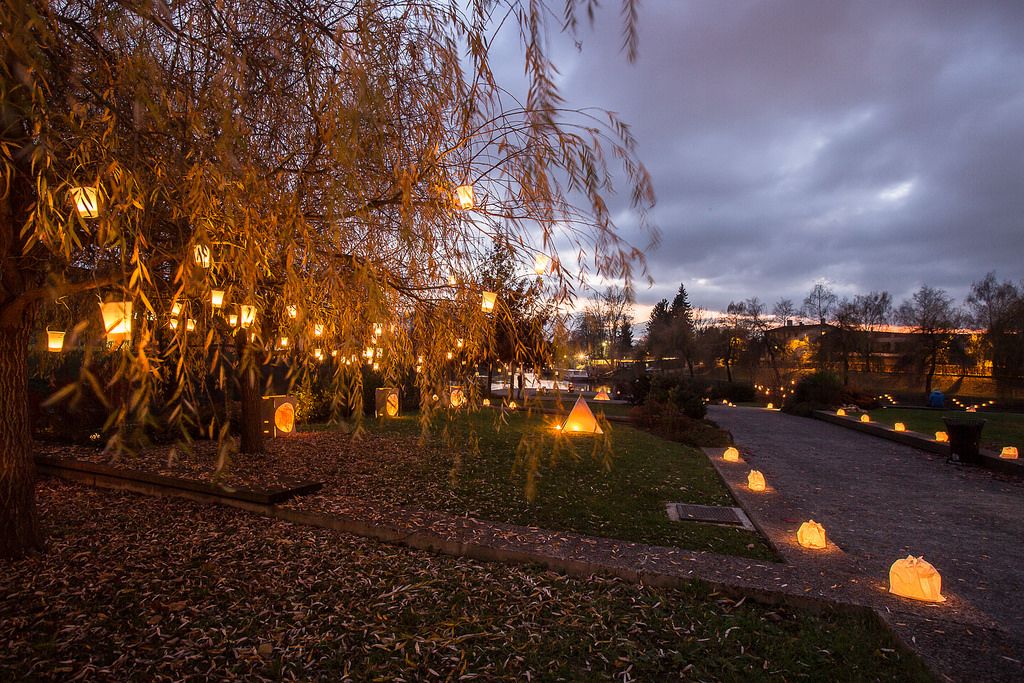
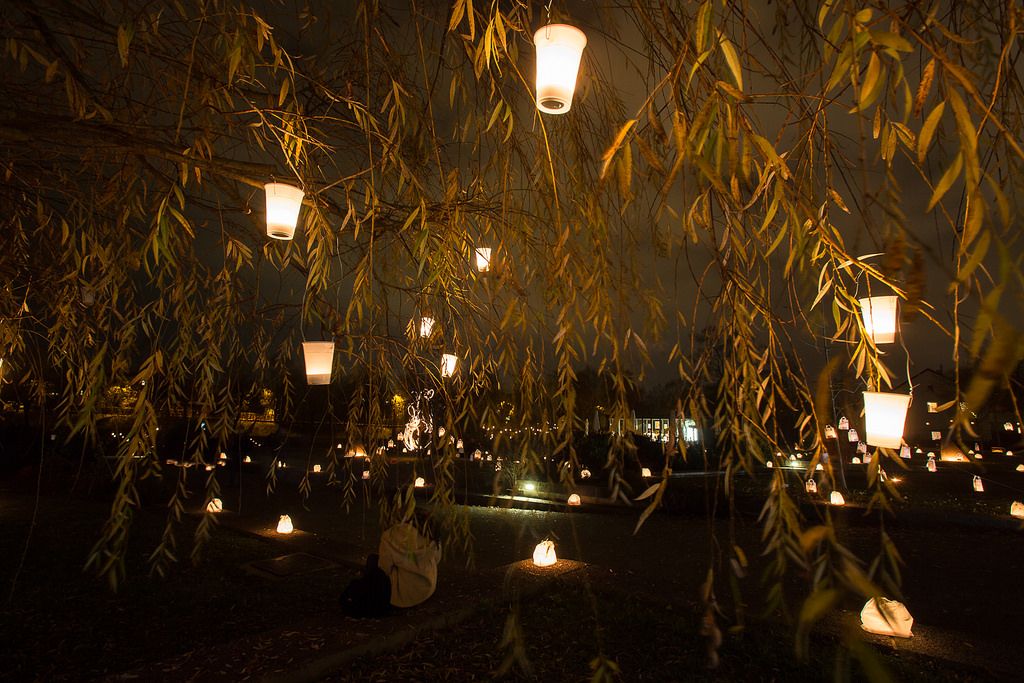
The summer’s most delightful festival in Ljubljana is, in my opinion, Ana Desetnica, which for more than week brings an international programme of street performers to the capital, with music, comedy, magic and drama livening up the city’s bridges, squares and street corners. The same organisation behind that event, Gledališče Ana Monro, is organising an autumn festival, Ana Plamenita in Špica, Ljubljana, this Saturday, November 24th, from 17:00 to 21:00, although if the weather’s bad the event will be moved to Sunday. (Check the Facebook page for details.)
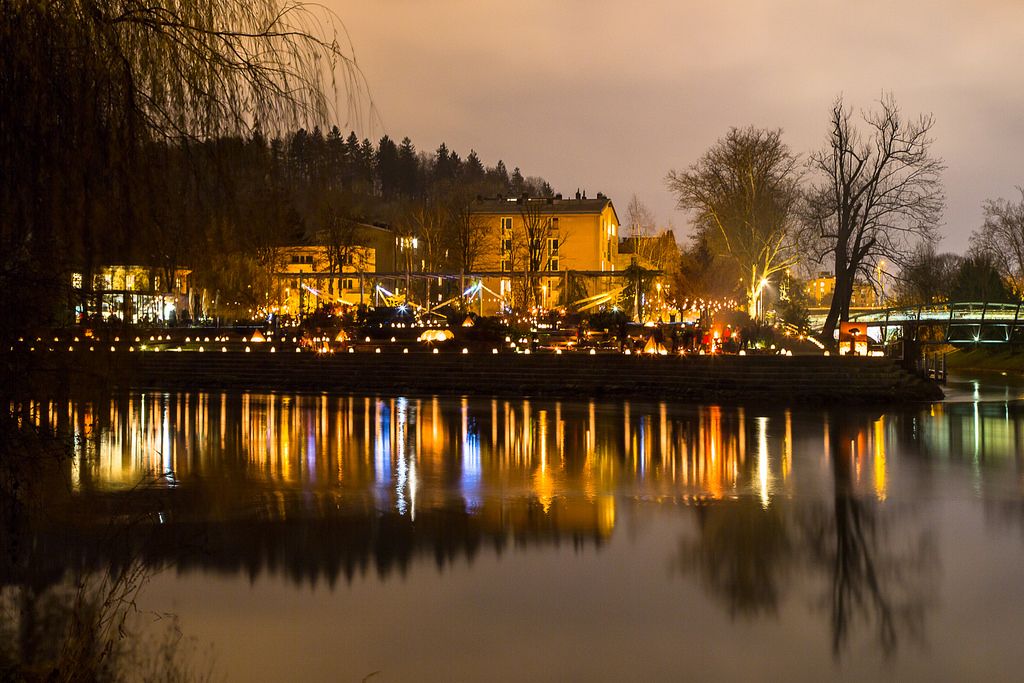
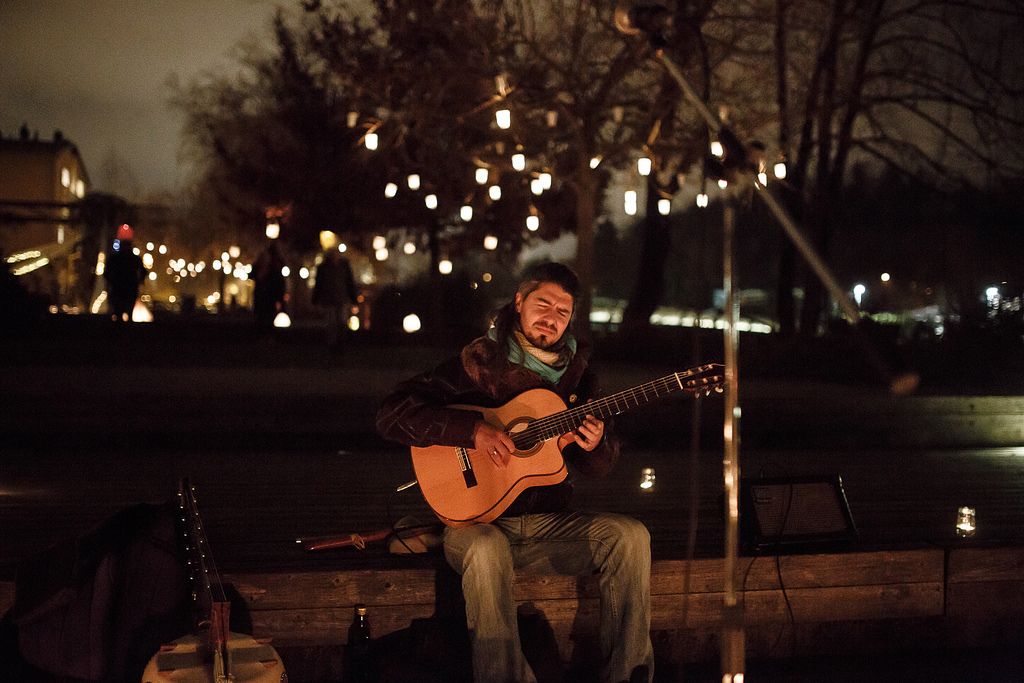
The unofficial start of Festive December in Ljubljana
In previous editions this has seen fire-based installations and performances lighting up various locations around town and this year the magic is set to take place just a short walk upriver from the centre of town, at Špica, which also hosted the event in 2017, when these pictures were taken.
Related: Špica – a riverside retreat not far from Ljubljana’s old town
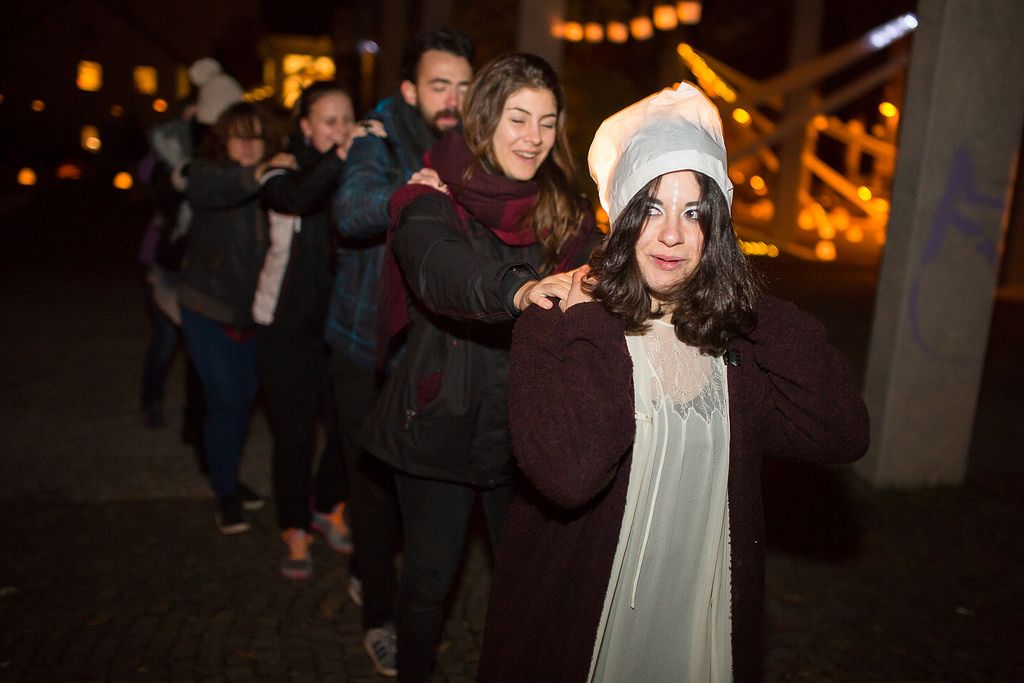
On arriving at the site of Ana Plamenita you’ll see an area transformed with fire and light, set up in creative displays to bring magic to an autumn evening, and just a week before the lights are turned on in Ljubljana. Of course, where there’s light there’s shadow, and shadow-play will be a special feature of this year’s festival, with workshops and creative areas set-up for you to make your own lanterns and dolls.
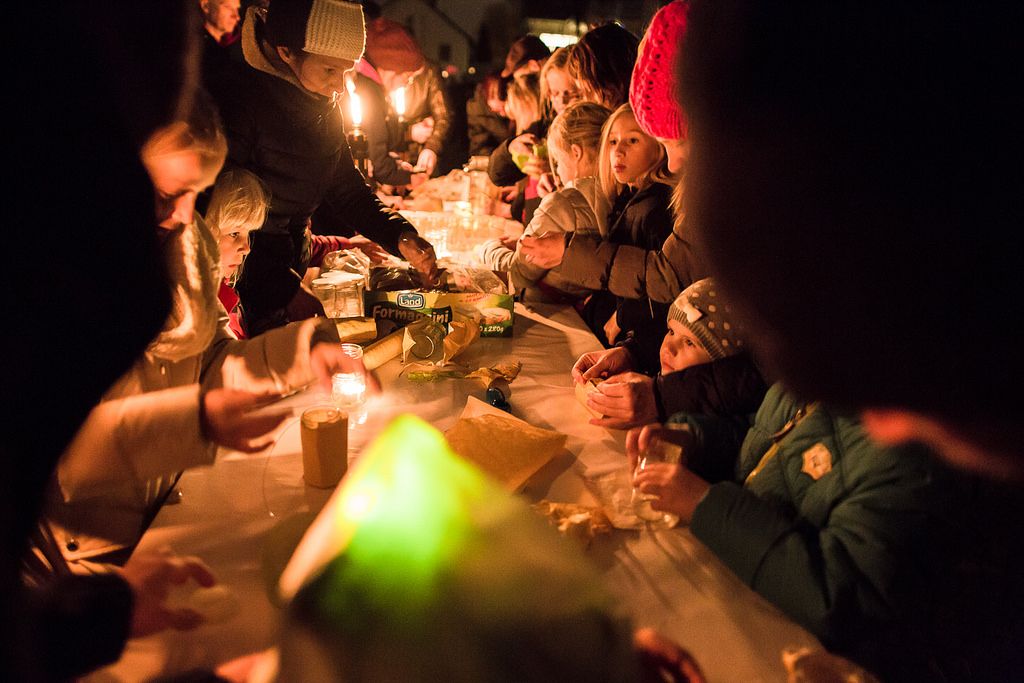
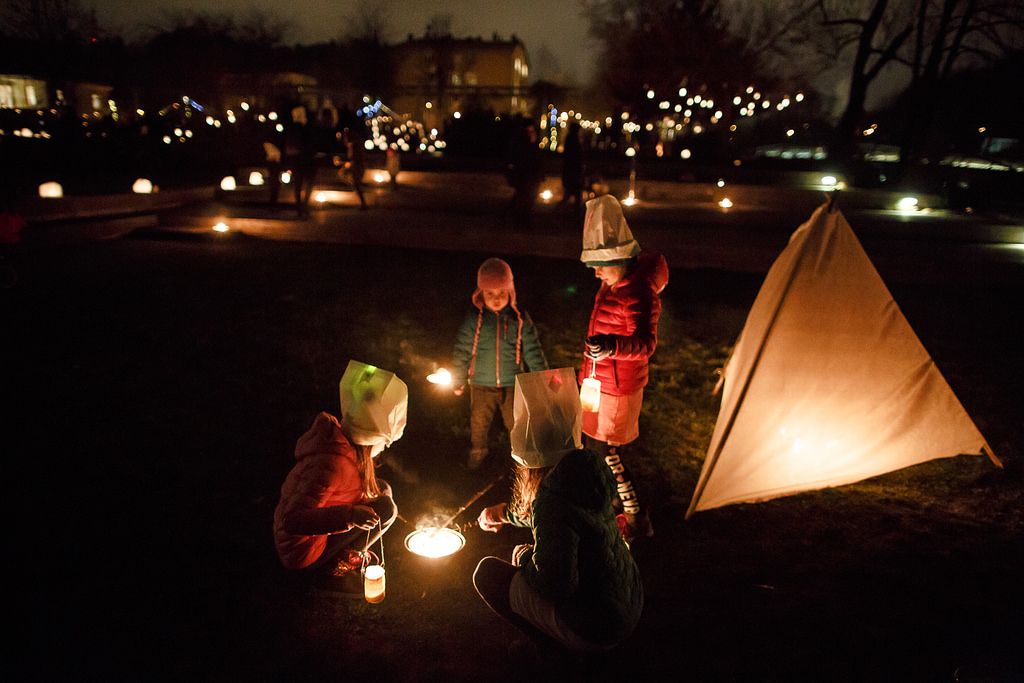
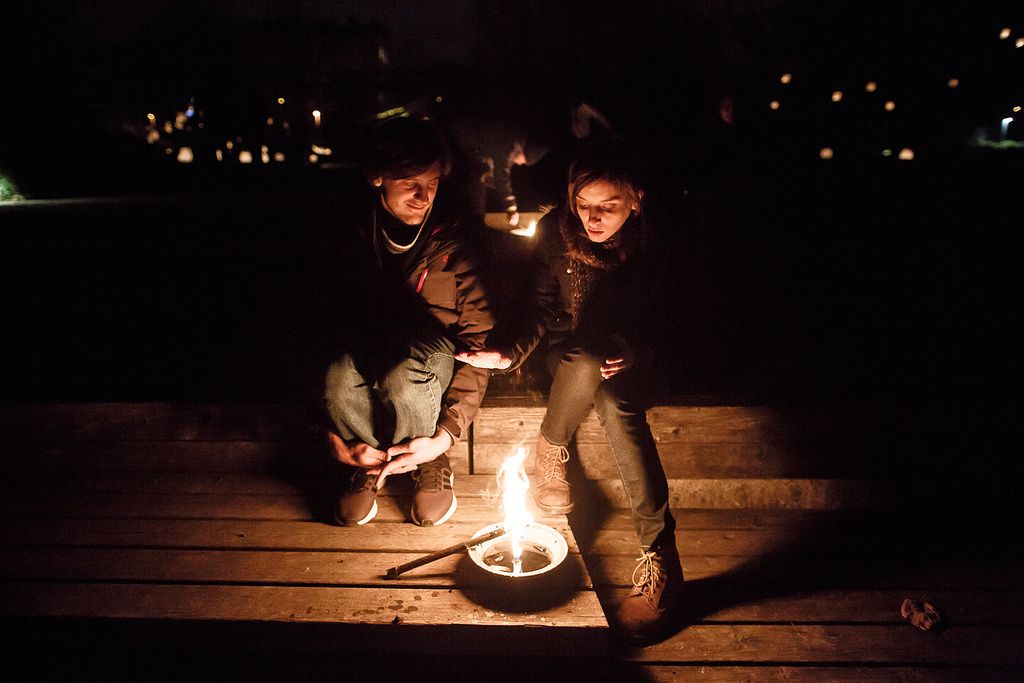
While surprise remains a key element of the evening, expect performances from various artists making use of the ambiance, with paper giants and a creature in the Japanese shade garden, as well as Tango Pop dancing in the streets. In addition to such displays visitors will be pleased to note that the Špica Caffe will be open should you need a warm drink on a cold evening.
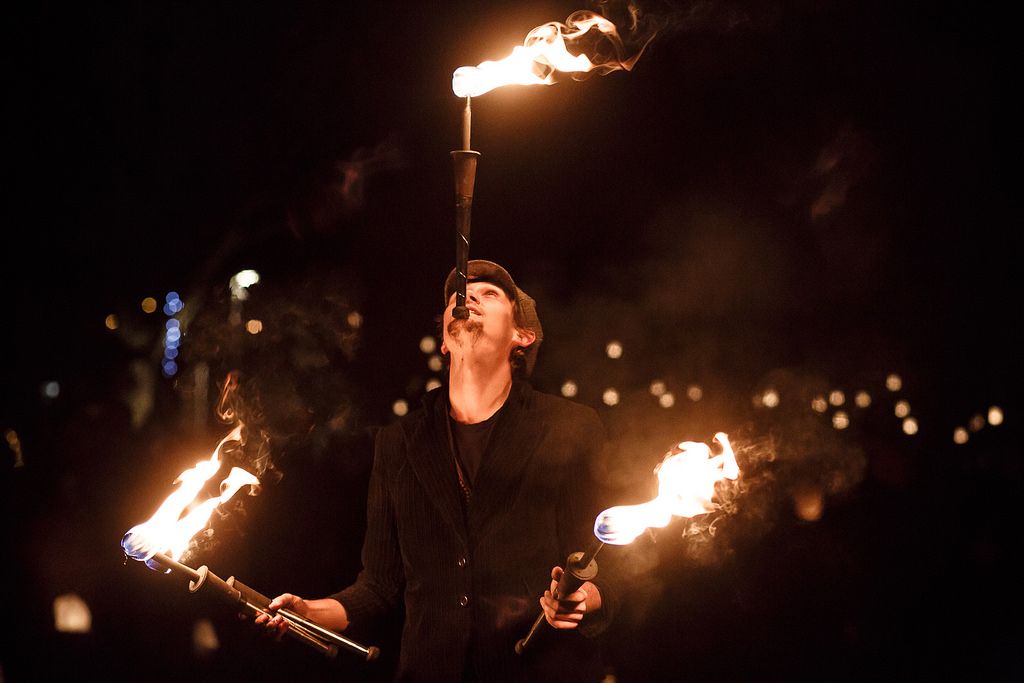
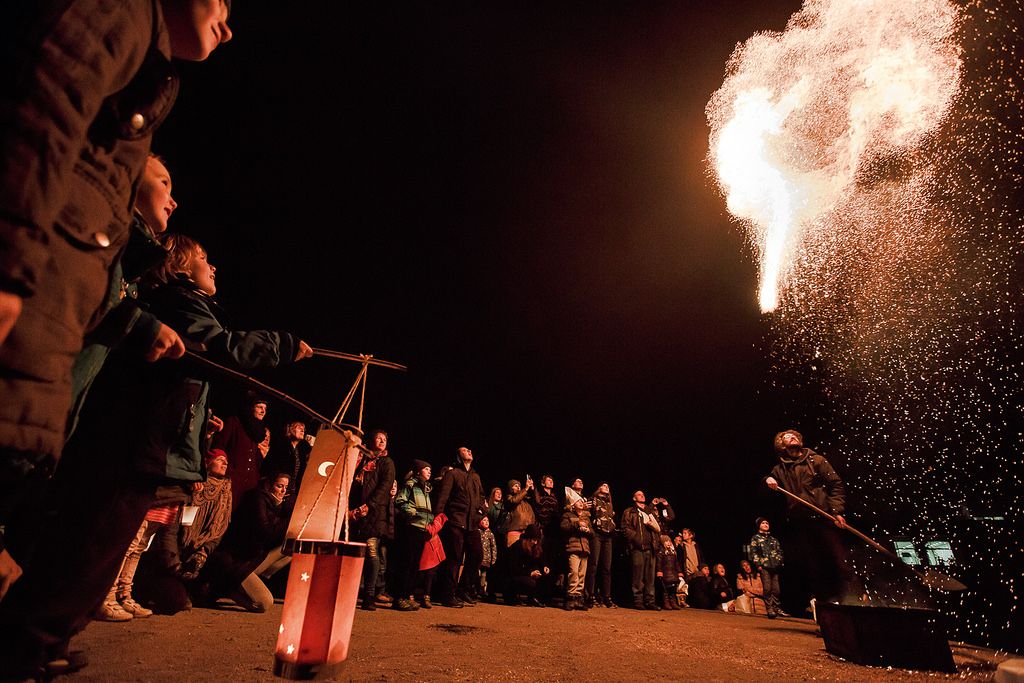
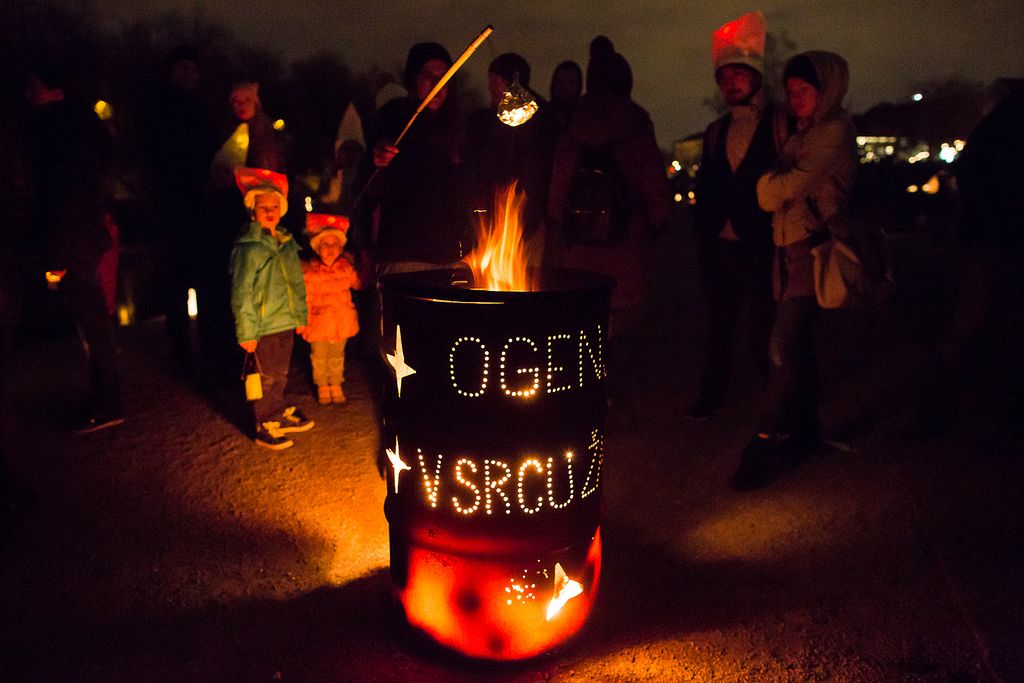
Ana Plamenita is on this Saturday, November 24th, 17:00 to 21:00, weather permitting, and check the Facebook, Instagram or website (Slovene only) for details of that. And if you can’t make this event then don’t worry, as Ana Monro is back in town at the end of December with the winter edition of its street theatre festival, Ana Mraz.
